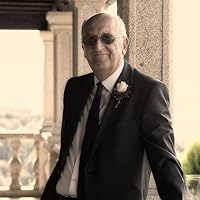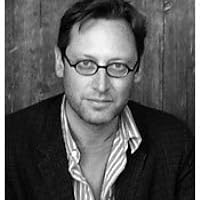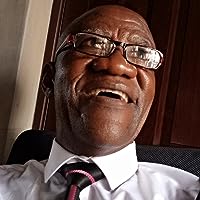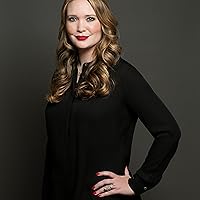Atrocities Quotes
Quotes tagged as "atrocities"
Showing 1-30 of 42

“The ORDINARY RESPONSE TO ATROCITIES is to banish them from consciousness. Certain violations of the social compact are too terrible to utter aloud: this is the meaning of the word unspeakable.
Atrocities, however, refuse to be buried. Equally as powerful as the desire to deny atrocities is the conviction that denial does not work. Folk wisdom is filled with ghosts who refuse to rest in their graves until their stories are told. Murder will out. Remembering and telling the truth about terrible events are prerequisites both for the restoration of the social order and for the healing of individual victims.
The conflict between the will to deny horrible events and the will to proclaim them aloud is the central dialectic of psychological trauma. People who have survived atrocities often tell their stories in a highly emotional, contradictory, and fragmented manner that undermines their credibility and thereby serves the twin imperatives of truth-telling and secrecy. When the truth is finally recognized, survivors can begin their recovery. But far too often secrecy prevails, and the story of the traumatic event surfaces not as a verbal narrative but as a symptom.
The psychological distress symptoms of traumatized people simultaneously call attention to the existence of an unspeakable secret and deflect attention from it. This is most apparent in the way traumatized people alternate between feeling numb and reliving the event. The dialectic of trauma gives rise to complicated, sometimes uncanny alterations of consciousness, which George Orwell, one of the committed truth-tellers of our century, called "doublethink," and which mental health professionals, searching for calm, precise language, call "dissociation." It results in protean, dramatic, and often bizarre symptoms of hysteria which Freud recognized a century ago as disguised communications about sexual abuse in childhood. . . .”
― Trauma and Recovery: The Aftermath of Violence - From Domestic Abuse to Political Terror
Atrocities, however, refuse to be buried. Equally as powerful as the desire to deny atrocities is the conviction that denial does not work. Folk wisdom is filled with ghosts who refuse to rest in their graves until their stories are told. Murder will out. Remembering and telling the truth about terrible events are prerequisites both for the restoration of the social order and for the healing of individual victims.
The conflict between the will to deny horrible events and the will to proclaim them aloud is the central dialectic of psychological trauma. People who have survived atrocities often tell their stories in a highly emotional, contradictory, and fragmented manner that undermines their credibility and thereby serves the twin imperatives of truth-telling and secrecy. When the truth is finally recognized, survivors can begin their recovery. But far too often secrecy prevails, and the story of the traumatic event surfaces not as a verbal narrative but as a symptom.
The psychological distress symptoms of traumatized people simultaneously call attention to the existence of an unspeakable secret and deflect attention from it. This is most apparent in the way traumatized people alternate between feeling numb and reliving the event. The dialectic of trauma gives rise to complicated, sometimes uncanny alterations of consciousness, which George Orwell, one of the committed truth-tellers of our century, called "doublethink," and which mental health professionals, searching for calm, precise language, call "dissociation." It results in protean, dramatic, and often bizarre symptoms of hysteria which Freud recognized a century ago as disguised communications about sexual abuse in childhood. . . .”
― Trauma and Recovery: The Aftermath of Violence - From Domestic Abuse to Political Terror

“I'm convinced that most men don't know what they believe, rather, they only know what they wish to believe. How many people blame God for man's atrocities, but wouldn't dream of imprisoning a mother for her son's crime?”
― Killosophy
― Killosophy
“The terrified men did not move. Then Nadia Fedin did something instinctive; she drew her Nagant revolver and fired three short bursts into the head of the nearest soldier. Stepan Ivanovich’s skull burst like a ripe cabbage showering his horrified comrades with viscous brain and bits of bone.”
― Who Has Buried the Dead?: From Stalin to Putin … The last great secret of World War Two
― Who Has Buried the Dead?: From Stalin to Putin … The last great secret of World War Two

“I really do think that if for one week in the United States we saw the true face of war, we saw people's limbs sheared off, we saw kids blown apart, for one week, war would be eradicated. Instead, what we see in the U.S. media is the video war game. ”
―
―

“Psychological trauma is an affliction of the powerless. At the moment of trauma, the victim is rendered helpless by overwhelming force. When the force is that of nature, we speak of disasters. When the force is that of other human beings, we speak of atrocities. Traumatic events overwhelm the ordinary systems of care that give people a sense of control, connection, and meaning.… Traumatic events are extraordinary, not because they occur rarely, but rather because they overwhelm the ordinary human adaptations to life.… They confront human beings with the extremities of helplessness and terror, and evoke the responses of catastrophe.”
― Trauma and Recovery: The Aftermath of Violence - From Domestic Abuse to Political Terror
― Trauma and Recovery: The Aftermath of Violence - From Domestic Abuse to Political Terror

“The character of Moses, as stated in the Bible, is the most horrid that can be imagined. If those accounts be true, he was the wretch that first began and carried on wars on the score or on the pretence of religion; and under that mask, or that infatuation, committed the most unexampled atrocities that are to be found in the history of any nation. Of which I will state only one instance:
When the Jewish army returned from one of their plundering and murdering excursions, the account goes on as follows (Numbers xxxi. 13): 'And Moses, and Eleazar the priest, and all the princes of the congregation, went forth to meet them without the camp; and Moses was wroth with the officers of the host, with the captains over thousands, and captains over hundreds, which came from the battle; and Moses said unto them, 'Have ye saved all the women alive?' behold, these caused the children of Israel, through the counsel of Balaam, to commit trespass against the Lord in the matter of Peor, and there was a plague among the congregation of the Lord. Now therefore, 'kill every male among the little ones, and kill every woman that hath known a man by lying with him; but all the women- children that have not known a man by lying with him, keep alive for Yourselves.'
Among the detestable villains that in any period of the world have disgraced the name of man, it is impossible to find a greater than Moses, if this account be true. Here is an order to butcher the boys, to massacre the mothers, and debauch the daughters.
Let any mother put herself in the situation of those mothers, one child murdered, another destined to violation, and herself in the hands of an executioner: let any daughter put herself in the situation of those daughters, destined as a prey to the murderers of a mother and a brother, and what will be their feelings?
In short, the matters contained in this chapter, as well as in many other parts of the Bible, are too horrid for humanity to read, or for decency to hear.”
― The Age of Reason
When the Jewish army returned from one of their plundering and murdering excursions, the account goes on as follows (Numbers xxxi. 13): 'And Moses, and Eleazar the priest, and all the princes of the congregation, went forth to meet them without the camp; and Moses was wroth with the officers of the host, with the captains over thousands, and captains over hundreds, which came from the battle; and Moses said unto them, 'Have ye saved all the women alive?' behold, these caused the children of Israel, through the counsel of Balaam, to commit trespass against the Lord in the matter of Peor, and there was a plague among the congregation of the Lord. Now therefore, 'kill every male among the little ones, and kill every woman that hath known a man by lying with him; but all the women- children that have not known a man by lying with him, keep alive for Yourselves.'
Among the detestable villains that in any period of the world have disgraced the name of man, it is impossible to find a greater than Moses, if this account be true. Here is an order to butcher the boys, to massacre the mothers, and debauch the daughters.
Let any mother put herself in the situation of those mothers, one child murdered, another destined to violation, and herself in the hands of an executioner: let any daughter put herself in the situation of those daughters, destined as a prey to the murderers of a mother and a brother, and what will be their feelings?
In short, the matters contained in this chapter, as well as in many other parts of the Bible, are too horrid for humanity to read, or for decency to hear.”
― The Age of Reason

“It is true that all of us are the beneficiaries of crimes committed by our ancestors, and it is true that nothing can be done about that now because the victims are dead and the survivors are innocent. These are good reasons for keeping our mouths shut about the past: but tell me, what are our reasons for silence about atrocities still to come?”
― One Side Laughing: Stories Unlike Other Stories
― One Side Laughing: Stories Unlike Other Stories

“Scientists and inventors of the USA (especially in the so-called "blue state" that voted overwhelmingly against Trump) have to think long and hard whether they want to continue research that will help their government remain the world's superpower. All the scientists who worked in and for Germany in the 1930s lived to regret that they directly helped a sociopath like Hitler harm millions of people. Let us not repeat the same mistakes over and over again.”
―
―

“I don't know how to stop the atrocities. I don't know how to make people care. But looking into my sister's eyes, we seem to have carved out something between us that none of the madness can touch. Invisible threads.”
― A Thousand Sisters: My Journey into the Worst Place on Earth to Be a Woman
― A Thousand Sisters: My Journey into the Worst Place on Earth to Be a Woman

“The oak trees seemed as though they were playing instruments; here a gentle violin, over there two harps in harmony, flutes and other woodwinds joined the tree orchestra.”
― The Empress:
― The Empress:

“McGuire started to rub the soap across himself, amazed at the change in his own skin colour as the filth of years of poverty floated off him.”
― No Road to Khartoum
― No Road to Khartoum

“My worry is that they will look down on our enemies. They have seen the Arabs in these mud towns and think the Dervishes are the same quality. That can’t be true. These are the people that wiped out Billy Hicks and his column. He had modern weapons and they had sticks and swords. That speaks to a rare sort of courage and determination.”
― No Road to Khartoum
― No Road to Khartoum

“For Sade, all tenderness is false, a deceit, a trap; all pleasure contains within itself the seeds of atrocities; all beds are minefields.”
― The Sadeian Woman: And the Ideology of Pornography
― The Sadeian Woman: And the Ideology of Pornography

“When we read tales of atrocity, we all want to be the ones who stood firm, who would not bend, who shouted the truth in the face of the dictator ... It is easy for us all to imagine we are heroes when we are sitting in our kitchens, dreaming of distant suffering.”
― Symphony for the City of the Dead: Dmitri Shostakovich and the Siege of Leningrad
― Symphony for the City of the Dead: Dmitri Shostakovich and the Siege of Leningrad

“I do not know where Viktor and Rudolf were taken. I cannot find the records. I never Elisabeth or Iggie.
It is possible that they were taken to the Hotel Metropole, which has been sequestered as the headquarters of the Gestapo. There are many other lock-ups for this flood of Jews. They are beaten, of course; but they are also forbidden to shave or wash so that they look even more degenerate. This because it is important to address the old affront of Jews not looking like Jews. This processing of stripping away your respectability, taking away your watch-chain, or your shoes or your belt, so that you stumble to hold up your trousers with one hand, is a way of returning everyone to the shtetl, stripping you back to your essential character - wandering, unshaven, bowed with your possessions on your back. You are supposed to end up looking like a cartoon from Der Stuermer, Streicher's tabloid that is now sold on the streets of Vienna. They take away your reading glasses.”
― The Hare With Amber Eyes: A Family's Century of Art and Loss
It is possible that they were taken to the Hotel Metropole, which has been sequestered as the headquarters of the Gestapo. There are many other lock-ups for this flood of Jews. They are beaten, of course; but they are also forbidden to shave or wash so that they look even more degenerate. This because it is important to address the old affront of Jews not looking like Jews. This processing of stripping away your respectability, taking away your watch-chain, or your shoes or your belt, so that you stumble to hold up your trousers with one hand, is a way of returning everyone to the shtetl, stripping you back to your essential character - wandering, unshaven, bowed with your possessions on your back. You are supposed to end up looking like a cartoon from Der Stuermer, Streicher's tabloid that is now sold on the streets of Vienna. They take away your reading glasses.”
― The Hare With Amber Eyes: A Family's Century of Art and Loss

“There was no more reasonable sequitur between “provocation” and “reaction” in the case of the French Revolution than in the case of the Jews and the Nazis, the Armenians and the young Turks, the old Russian regime, the Kerensky interlude and bolshevism, Portuguese colonial rule in Angola and the horrors perpetrated by savage monsters of Holden Roberto’s “Liberation Front,” the Belgian administration in the Congo and the delirious atrocities of Gbenye and Mulele, British colonialism in Kenya and the Mau-Mau. We have to face the fact that man is not “good”—only the extraordinary man is, only the heroic saint or the saintly hero, while the noble savage belongs to the world of fairy tales.”
― Leftism Revisited: from de Sade and Marx to Hitler and Pol Pot
― Leftism Revisited: from de Sade and Marx to Hitler and Pol Pot

“It is bizarre that people should commit atrocities in the name of their god. Such ones’ medulla oblong 'commonsense' is submerged in ecclesiastical balderdash.”
― Weighty 'n' Worthy African Proverbs - Volume 1
― Weighty 'n' Worthy African Proverbs - Volume 1
“We donot qualify as humans going by our acts, but we surely prove through our vulnerability and sufferings!” ”
―
―

“Be a valiant shield to stand against atrocities.
If not you, who else will call that duty mine”
― Mad About Humans: World Maker's Almanac
If not you, who else will call that duty mine”
― Mad About Humans: World Maker's Almanac

“Hold just enough ego to be a man of your word, and to stand against evil mobs who force the absurd.”
―
―

“Turns out if you write about police violence and atrocities, if you wait a month, it'll happen again, so... That's America.”
―
―

“Do not open your minds to the filtering of the fallacious doctrine that it is less infamous to murder men for their politics than for their religion or their money, or that the courage to execute the deed is worse than the cowardice to excuse it. Let us not flinch from condemning without respite or remission, not only Marat and Carrier, but also Barnave. Because there may be hanging matter in the lives of illustrious men, of William the Silent and Farnese, of Cromwell and Napoleon, we are not to be turned from justice towards the actions, and still more the thoughts, of those whom we are about to study.”
― Lectures on the French Revolution
― Lectures on the French Revolution

“If any locals had seen the dark-robed group as they moved through the darkness they might well have felt the stirrings of fear. Monks – anonymous, rootless, untraceable – were able to commit atrocities with near impunity. ‘Our angels’ some Christians called them. Rubbish, said non-Christians. They were not angels but ignorant, boorish thugs, men in appearance only who ‘led the lives of swine, and openly did and allowed countless unspeakable crimes’. As the author Eunapius wrote with sardonic distaste: ‘in those days every man who wore a black robe and consented to behave in unseemly fashion in public, possessed the power of a tyrant, to such a pitch of virtue had the human race advanced!’ Even a wholeheartedly Christian emperor mutedly observed that ‘the monks commit many crimes’. And on that night, these monks were about to commit another. Shenoute’s target was not, this time, one of his monks but one of the wicked, godless pagans. In sermon after furious sermon Shenoute had turned his famously fiery prose on these people. Their hearts were ‘the nests of the spirits of wickedness’. If disturbed then these evil people would spit out poison. The Bible, Shenoute told his congregants, said that those who set up pagan images should be killed. As he put it in one particularly vigorous sermon, God wished His people to ‘remove the abominations from His presence’. The emperors, Shenoute thundered, had declared that the entire earth must be cleansed of perversions. No stone was to be left on top of any other stone of any pagan temple. Not one. In the entire earth.”
― The Darkening Age: The Christian Destruction of the Classical World
― The Darkening Age: The Christian Destruction of the Classical World

“You are young, child. You have much to learn about the ways of the world-'
'Do not,' Rhys said with deadly quiet, 'condescend to her.' The eldest queen- who was but a child to him, to his centuries of existence- had the good sense to look nervous at that tone. Rhys's eyes were glazed, his face as unforgiving as his voice as he went on, 'Do not insult Feyre for speaking with her heart, with compassion for those who cannot defend themselves, when you speak from only selfishness and cowardice.'
The eldest stiffened. 'For the greater good-'
'Many atrocities,' Rhys purred, 'have been done in the name of the greater good.”
― A Court of Mist and Fury
'Do not,' Rhys said with deadly quiet, 'condescend to her.' The eldest queen- who was but a child to him, to his centuries of existence- had the good sense to look nervous at that tone. Rhys's eyes were glazed, his face as unforgiving as his voice as he went on, 'Do not insult Feyre for speaking with her heart, with compassion for those who cannot defend themselves, when you speak from only selfishness and cowardice.'
The eldest stiffened. 'For the greater good-'
'Many atrocities,' Rhys purred, 'have been done in the name of the greater good.”
― A Court of Mist and Fury

“they will reflexively demand that somebody do something. The worst among us always see this as an opportunity for political gain. The facts don’t matter to them. It is simple stimulus and response. There’s a tragedy, so they’re going to capitalize on it for their benefit. They’ll certainly offer a something. Unfortunately the thing they offer usually wouldn’t have prevented the crime, it punishes those who had nothing to do with it, and actually makes the problem worse by paving the way for more awful events in the future.”
― In Defense of the Second Amendment
― In Defense of the Second Amendment
“,,The ordinary response to atrocities is to banish them from consciousness (...) Atrocities, however, refuse to be buried".
,,Filk wisdom is filled with ghosts who refuse to rest in their graves until their stories are told".
,,The conflict between the will to deny horrible events and the will to proclaim them aloud is the central dialectic of psychological trauma".
,,When the truth is finally recognized, survivors can begin their recovery".”
―
,,Filk wisdom is filled with ghosts who refuse to rest in their graves until their stories are told".
,,The conflict between the will to deny horrible events and the will to proclaim them aloud is the central dialectic of psychological trauma".
,,When the truth is finally recognized, survivors can begin their recovery".”
―

“Many in your world have the idea that there has been progress since my day, that people have become more humane, that atrocities were rife back then but have diminished in your era, though I don't know how anyone who has been paying attention can hold such a view.”
― Old Babes in the Wood: Stories
― Old Babes in the Wood: Stories
All Quotes
|
My Quotes
|
Add A Quote
Browse By Tag
- Love Quotes 97k
- Life Quotes 75.5k
- Inspirational Quotes 72.5k
- Humor Quotes 43.5k
- Philosophy Quotes 29.5k
- Inspirational Quotes Quotes 27k
- God Quotes 26k
- Truth Quotes 23.5k
- Wisdom Quotes 23.5k
- Romance Quotes 23k
- Poetry Quotes 22k
- Death Quotes 20k
- Happiness Quotes 18.5k
- Life Lessons Quotes 18.5k
- Hope Quotes 18k
- Faith Quotes 18k
- Quotes Quotes 16.5k
- Inspiration Quotes 16.5k
- Spirituality Quotes 15k
- Religion Quotes 15k
- Motivational Quotes 15k
- Writing Quotes 14.5k
- Relationships Quotes 14.5k
- Life Quotes Quotes 14k
- Love Quotes Quotes 13.5k
- Success Quotes 13.5k
- Time Quotes 12.5k
- Motivation Quotes 12k
- Science Quotes 11.5k
- Knowledge Quotes 11k



